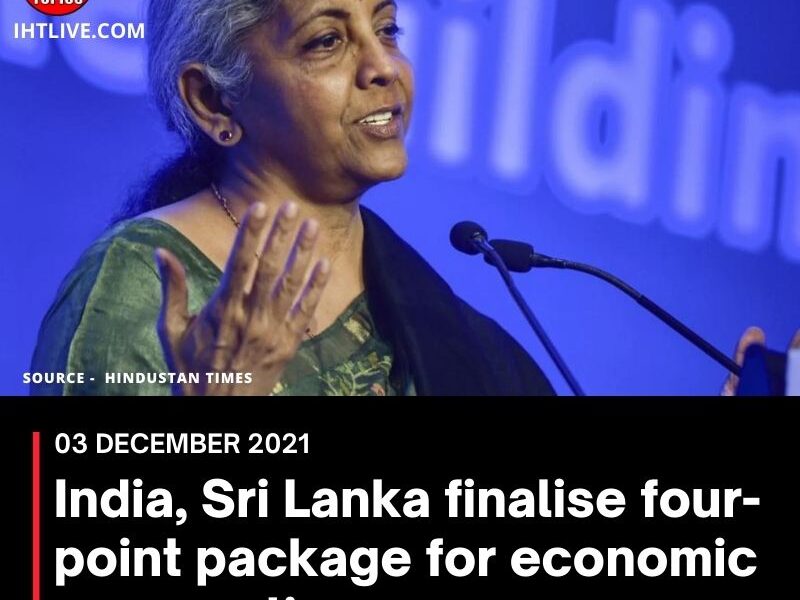India and Sri Lanka have formulated a four-point plan, including credit lines and currency swap arrangements for food and drug imports, to deepen economic cooperation and help the island country cope with economic problems.
The package was finalized at two meetings between Sri Lanka’s Finance Minister Basil Rajapaksa, India’s Finance Minister Nirmala Sitharaman, and Foreign Minister S Jaishankar, who visited on Wednesday and Thursday.
This is Rajapaksa’s first visit since he took office in July.
In a statement issued by the Sri Lanka High Commission at the end of Rajapaksa’s visit on Thursday, the two sides discussed the four pillars of short- and medium-term cooperation.
These include an emergency food and health and safety package plan, which envisages India to expand credit lines to cover Sri Lanka’s imports of food, medicine and other necessities. The energy security package will include credit lines that include imports of fuel from India, and the Trincomalee oil depot. Early modernization. The package also includes the provision of currency swaps to help Sri Lanka solve the current balance of payments problems, and to promote India’s investment in different sectors in Sri Lanka. The statement stated that it will contribute to the promotion of growth and employment expansion. The two parties further agreed that the way to realize this plan would be “finalized as soon as possible within a mutually agreed timetable,” the statement said.
Rajapaksa and Sitharaman and Jaishankar “agreed to open a direct communication channel” and have direct and regular contact with each other to coordinate this initiative.
People familiar with the matter said on the condition of anonymity that both Sitharaman and Jaishankar participated in two rounds of discussions with Rajapaksa, which was of great significance. They said this reflects the importance that India attaches to its relations with Sri Lanka.
People familiar with the matter said that Sri Lanka’s first US$1 billion bilateral currency swap request in 2020 did not appear in recent discussions. The currency swap provided to Sri Lanka is expected to be carried out under the South Asian Association for Regional Cooperation (Saarc) mechanism and is worth 400 million U.S. dollars.
The relationship between New Delhi and Colombo took a hit earlier this year when Sri Lanka cancelled the 2019 agreement with India and Japan to operate the East Container Terminal at the port of Colombo, angering the two countries.
In October, the state-owned Sri Lanka Port Authority (SLPA) signed an agreement with the Adani Group of India to develop and operate the western container terminal at the Port of Colombo.
Adani Group and its local partner, John Keells Holdings, will jointly own 85% of the Western Container Terminal, giving India a much-needed strategic presence in the Port of Colombo, where nearly 70% of its business involves cargo destined for India.
News Source : Hindustan Times

